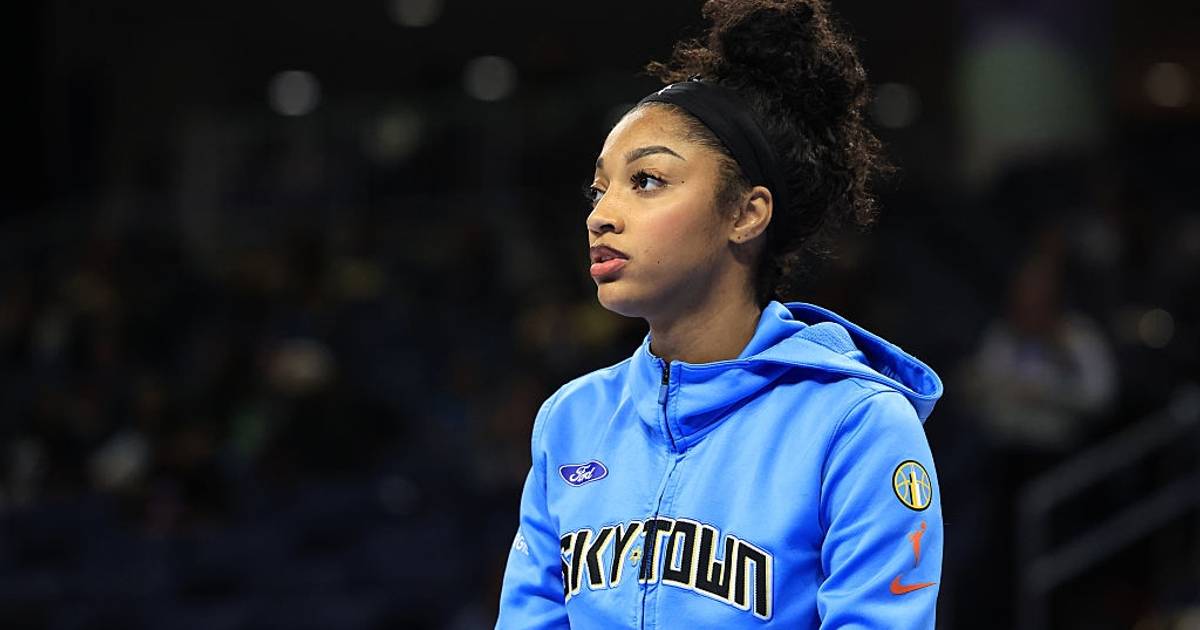Angel Reese is learning a tough lesson: in professional sports, telling the truth about your team can get you benched faster than missing a defensive assignment.
The Chicago Sky suspended Reese for half a game after she aired her frustrations about her team’s lackluster 10-31 season and called on management to bring in “great players.” In an interview with the Chicago Tribune, Reese was candid about wanting better teammates and a stronger roster — even hinting that if the Sky can’t deliver, she might explore other options.
That honesty led to a suspension. But let’s be real: was Reese wrong? Or is this just another case of a team protecting its ego instead of embracing a star’s competitive fire?
Losing Hurts — and Silence Doesn’t Fix It
The Sky aren’t just struggling; they’re sitting near the bottom of the standings, fighting not to finish last. Reese, meanwhile, is averaging a double-double and leading the league in rebounds at just 23 years old. She’s already a two-time All-Star, a walking highlight reel, and one of the main reasons Chicago has any national visibility this season.
And yet, she’s expected to smile through post-game pressers, take the blame for losses, and pretend that everything’s fine. That “keep your head down, don’t rock the boat” approach to team culture is outdated — especially in a league that’s trying to grow its audience and keep its best players stateside instead of losing them to more lucrative overseas deals.
Reese’s frustration is valid because she’s not just playing for herself. She’s fighting for her legacy, her future contracts, and the long-term success of a franchise that hasn’t been competitive since Candace Parker led them to a championship in 2021. Silence doesn’t fix losing, and Reese knows it.
When Men Do It, It’s Called Leadership
Let’s call this what it is: a double standard. In the NBA, star players openly criticize their front offices all the time. LeBron James has essentially acted as a shadow GM for years, forcing teams to make blockbuster trades and signings. Michael Jordan’s ruthless pursuit of greatness is legendary — his teammates have admitted he was relentless, sometimes cruel, but his legacy is “The GOAT,” not “difficult.”
When Angel Reese says, “We need better players,” she’s branded as toxic or “detrimental to the team.” But when men demand roster changes, they’re celebrated as leaders. This isn’t just sexism; it’s a reflection of how women in sports are still expected to be palatable and “grateful” rather than unapologetically competitive.
The Sky’s suspension statement was wrapped in corporate PR language, emphasizing “respect,” “well-being,” and “accountability.” But accountability shouldn’t just apply to players — especially not a player who has been carrying this team.
Chicago’s front office has failed to surround Reese with the talent she needs to compete. Their record speaks for itself. Reese’s comments weren’t malicious; they were a challenge. Great teams are built when players and management push each other to be better. Silencing that conversation sends a clear message: mediocrity is acceptable, and questioning leadership will cost you minutes on the court.
The WNBA Is Changing — Whether Teams Like It or Not
Reese is part of a new generation of players who refuse to play nice for the sake of optics. Her unapologetic personality, bold fashion, and willingness to clap back at critics have helped grow the WNBA’s profile in ways that traditional PR campaigns could only dream of.
This season alone, Reese has drawn sell-out crowds, boosted TV ratings, and dominated sports headlines. Her authenticity is part of her brand — she doesn’t just play basketball; she’s helping shape the culture around it. The league should embrace that energy, not punish it.
Reese’s criticism wasn’t about tearing down her teammates; it was about raising the bar. If the Sky want to keep her happy — and keep her in Chicago — they need to build a roster worthy of her talent and ambition.
Women Athletes Deserve the Same Respect
Women athletes are constantly told to “be grateful” for their opportunities, especially in a league where salaries pale in comparison to men’s sports. But gratitude shouldn’t mean complacency. Reese’s comments were about demanding excellence, not throwing shade.
If a male rookie averaging a double-double had spoken out like this, the headlines would read: “Future Superstar Holds Team Accountable” or “Franchise Cornerstone Pushes for Change.” Instead, Reese was labeled a distraction and benched. That narrative reinforces harmful stereotypes that women athletes should be quiet and “easy to manage” instead of competitive and vocal.
A Half-Game Suspension Won’t Change the Truth
Benching Reese for half a game isn’t discipline; it’s optics. It’s a message to other players: “Speak out, and we’ll punish you.” But all it does is highlight how much Reese means to this franchise. If the Sky didn’t need her, they’d suspend her for a full game.
At the end of the day, Reese is a generational talent. She’s already built a name bigger than some WNBA franchises themselves. Suspending her won’t stop her from being vocal, and it won’t fix Chicago’s losing record. If anything, it makes the organization look insecure.
Reese was right. She’s not the problem in Chicago — she’s the future. The Sky should be building around her, not punishing her for wanting to win. The league should be taking notes, too: this new generation of stars isn’t here to play nice. They’re here to change the game.

